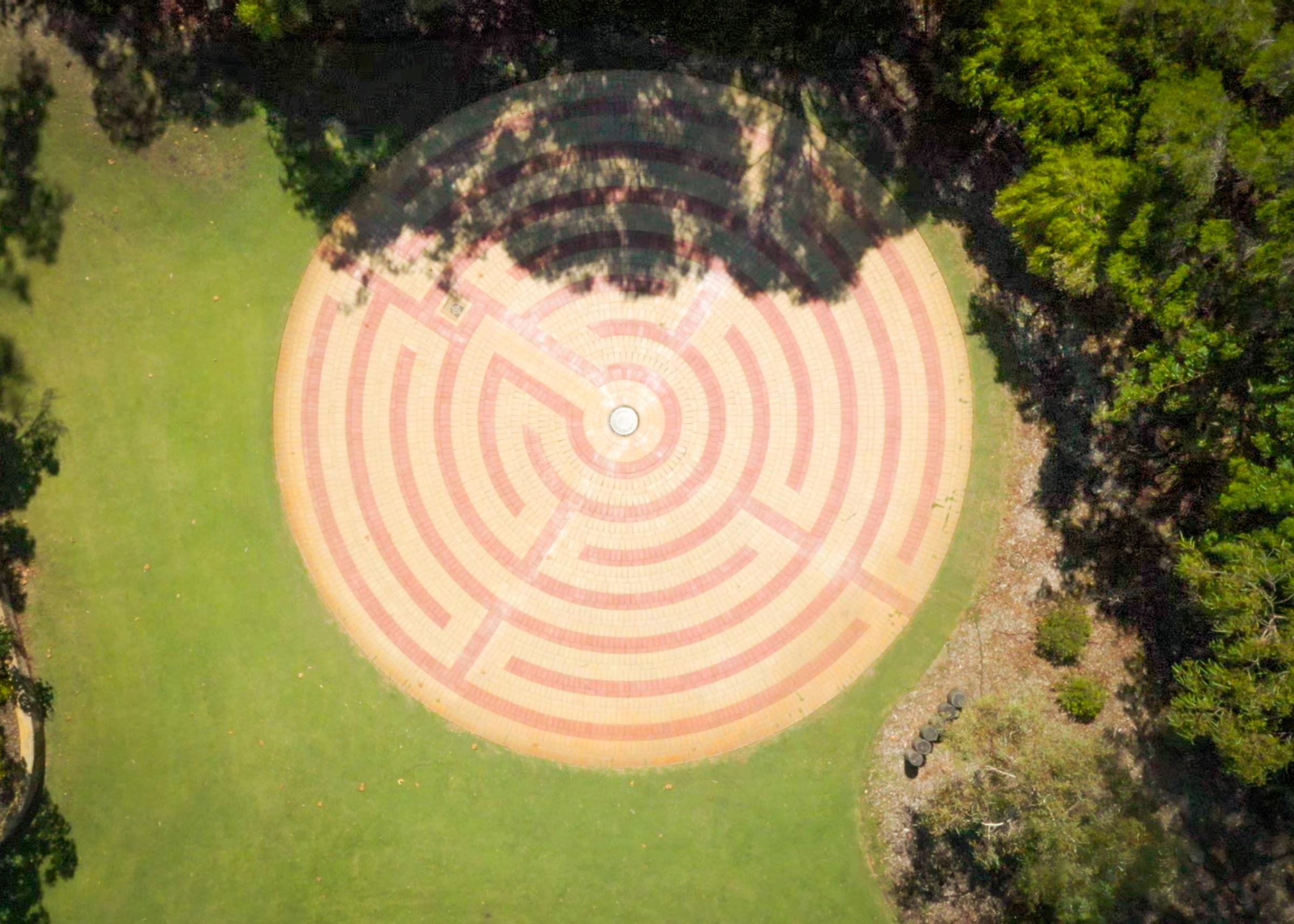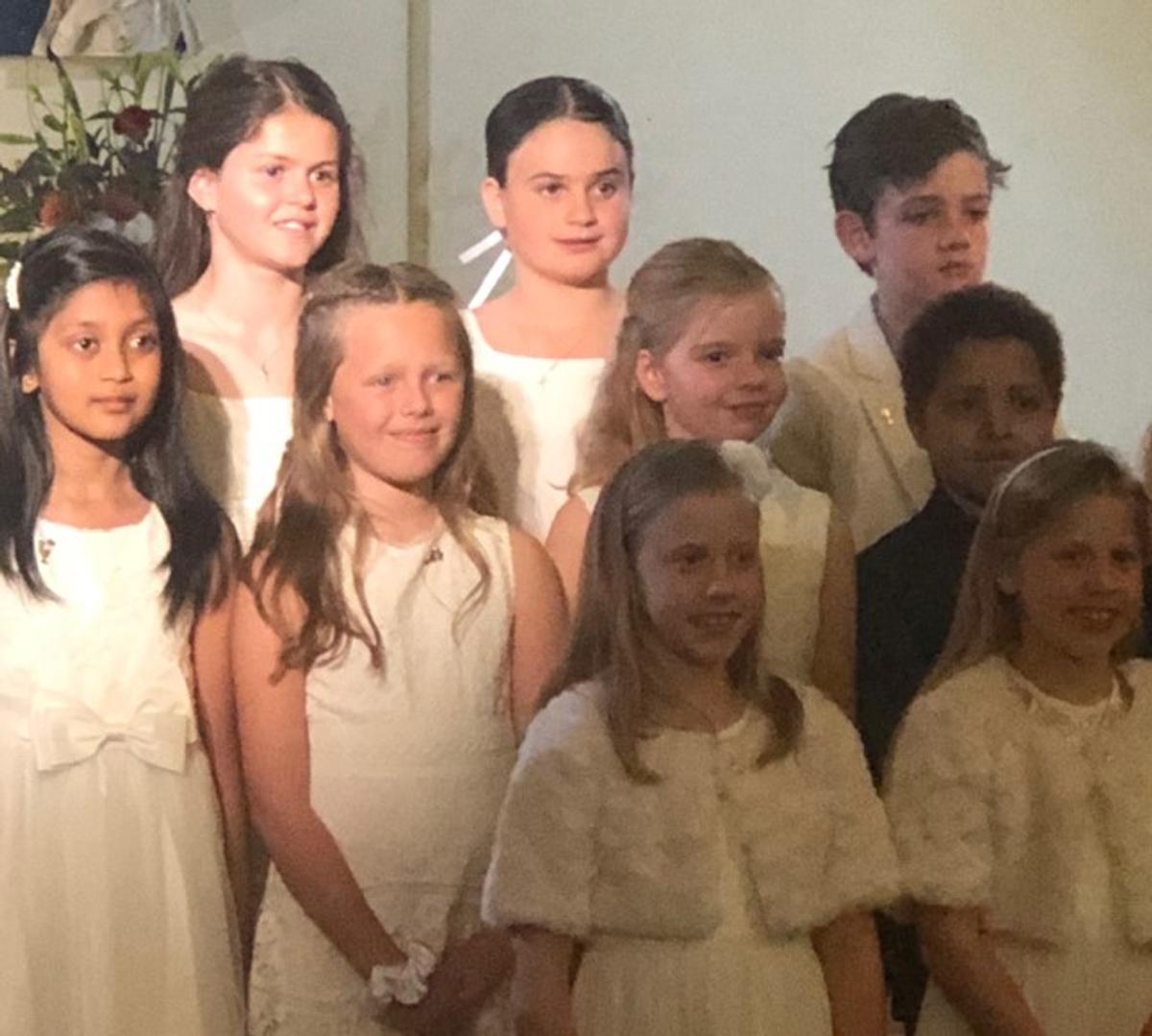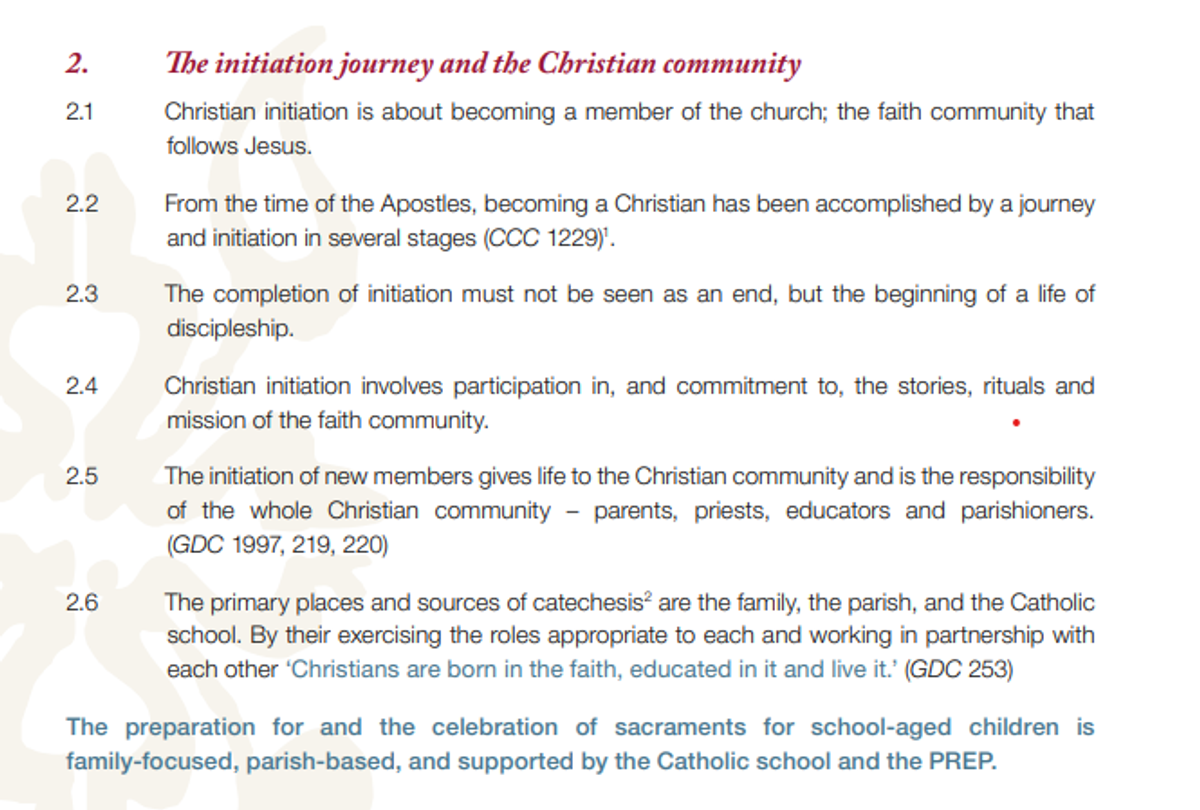Liturgy

Community Liturgy
Next Friday’s Community Mass will be prepared by students in Year 11. As the mornings become brighter and warmer, families are welcome to take the opportunity to gather in communal prayer and celebration of the Eucharist. Whether or not you are a regular or newcomer, all are welcome!
'Virtual' Liturgies of the Word
During the period of COVID restrictions in first and second term, when the community was unable to gather for the weekly celebration of the Eucharist every Friday, students and staff collaborated to prepare ‘virtual’ Liturgies of the Word.
In a celebration of the diverse skills and talents of music staff and students, the audio-visual team, members of the SRC and Homeroom leaders, some secondary students recently shared their responses to the liturgies. Thanks to Sam Tout for creating this video.
Community Mass Summary
- Every Friday
- 8:00am – 8:30am
- College Chapel
SACRAMENT PROGRAM
Congratulations to students and their families!
Congratulations to the Year 4s who made their first Communion in the parish of Saint Thomas Apostle Claremont last Friday.
Nick Adams
Henry Bahen
Bella Gauci
Maya Johnson
Alexa Kailis
Gus Lennon
Sophie Marchant
Felix McGinty
Nicholas Orugun
Charles O’Toole
Lucas Paton
Abigail Prosser
Isabel Prosser
Isobel Ptolomey
Emilia Rear
Ruby Scott
Abigail Stephenson
Christopher Tan
Georgia Walsh
Sacrament of Confirmation
Last week Archbishop Timothy Costelloe issued updated directives, aligned with phase 4 of Western Australia’s COVID-19 Roadmap.
The Sacrament of Confirmation may now be offered in parishes if certain conditions are met. The Archbishop states:
“The temporary suspension of the celebration of the Sacrament of Confirmation is hereby discontinued. The Sacrament of Confirmation may now be celebrated in accordance with the following directives. Each Parish Priest will make appropriate decisions about this matter after consultation with his sacramental team and other advisors. Confirmations may still be postponed until 2021...”
The complete Update is available on the Archdiocesan website.
Sacrament Preparation
In the Archdiocese of Perth, the model for Sacrament preparation is family-focused, parish-based, and school/PREP* supported. The Policy was formalized in 2014, and outlines how family, parish and school work together.
*Parish Religious Education Program
Sacraments 2021
Parishes are now planning for celebrations of the sacraments in 2021. Parents are encouraged to enrol their child in their ‘home’ parish once enrolments open.
For families living in the Cottesloe/Mosman Park area, enrolment information and contact details for the Sacrament Coordinator may be found here.
Enrolment information from other parishes will be updated as it becomes available.
If you would like further information about the Sacrament Program:
- See our updates provided by some of our ‘local’ parishes;
- If your nearest parish is not listed, search the Archdiocesan website;
- Check the information available on the College website
- Contact Mary-Anne Lumley mary-anne.lumley@cew.edu.au 08 9383 0408
Updates from local parishes
SAINT MARY STAR OF THE SEA, COTTESLOE
Confirmation 20 September, 10:00am
Contact: cottesloe@perthcatholic.org.au
SAINT THOMAS APOSTLE, CLAREMONT
Reconciliation 4 & 5 November, 3:30-4:30pm
Contact: silvia.kinder@cewa.edu.au
OUR LADY OF THE ROSARY, DOUBLEVIEW
First Communion Saturday 17 & 24 October, 6:00pm
Sunday 18 & 25 October, 10:00am.
Reconciliation Tuesday - Friday, 27 - 30 October, 9:00am.
Confirmation Saturday 7 & 14 November, 6:00pm
Sunday 8 & 15 November, 10:00am.
Contact: Kaye Shervington, doubleview@perthcatholic.org.au
OUR LADY OF GRACE, NORTH BEACH
Reconciliation 27 October
Contact: Sheralee Allen, north.beach@perthcatholic.org.au
ST JOSEPH, SUBIACO
The Parish of St Joseph regrets to advise that (due to their unique situation) in order to comply with both State Government and Archdiocesan Guidelines, they are unable to have the Sacrament program and Masses in 2020. They look forward to being able to publish, in due course, their enlarged program for 2021.
Contact: sacraments@stjosephssubiaco.org.au
GOOD NEWS for the 24th Sunday in Ordinary Time
“I tell you that you forgive not seven times but seventy times seven.”
The reflection for this Sunday’s Gospel is from Father Michael Tate and is used with permission. Rev. Prof. Michael Tate was a Senator for Tasmania from 1978-93 and Ambassador to The Hague and the Holy See from 1993-96. He is currently Vicar-General in the Archdiocese of Hobart and is an Honorary Professor of Law at the University of Tasmania where he lectures in International Humanitarian Law.
Forgiveness
The Jews were fascinated by the number seven. It reminded them of the seven days of creation and suggested perfection.
So, when Peter queried whether he would be a great hero if he forgave someone seven times, he was speaking in a very Jewish way. Seven times would be perfect. No, says Jesus. You have to be prepared to forgive seventy times seven, an ‘over the top’, totally extravagant proposition which was meant to jolt Peter to see that there are no limits to the need to forgive.
But Jesus still keeps the sevens resonating in his answer because he wants to say that to forgive is like a new act of creation: it creates life where there was the deadly desire for revenge, and light where there was darkness.
So, let’s look at this sort of forgiveness more closely, at the macro and the micro levels.
I once had the great privilege of shaking hands with Nelson Mandela at a Parliament House reception. Why was the crowd pressing up to this man, hoping to touch him?
Partly because of his great victory over apartheid in South Africa. (Doesn’t that word sound so apt in English: apart-hate.) Mostly, I think, because when he came to power he did not set out ‘to get even’, making sure that the ‘punishment fits the crime’, to exact revenge on those who had killed and tortured the blacks and coloureds of his beloved country.
Rather, he offered forgiveness to the offenders. Through the Truth and Reconciliation Commission, confession and admission of complicity in apartheid would lead to the closing of the books and a new beginning.
It is that sort of forgiveness – the closing of the books and a new beginning – which we dare to ask of God for ourselves. But here's the catch: it is that sort of forgiveness which we must practise towards others.
When we don’t, we are like the principal debtor in Jesus’ story. In harshly dealing with a disproportionately minor debtor, he refused to share his king’s quality of forgiveness. If we don’t pass on this aspect of God’s life to others, then we are warned that we will end up in a hellish situation unable to share in divine life.
After all, don’t we pray daily: ‘ ... forgive us our trespasses as we forgive those who trespass against us ... ’
Let us keep going at the micro level.
I don’t like the phrase: ‘Forgive and forget’. It is impossible to forget some terrible hurts or injustices done to one. In fact, it could be dangerous to forget because one could put oneself in a vulnerable situation again.
Remembering can be an important part of healing. So, forgiving is not forgetting. It is about giving up the desire ‘to get even’. It is to give up the all-consuming passion to make sure the wrongdoer ‘pays the full price’ for the wrongdoing. And it is good for us. As the Chinese proverb says: ‘If you desire revenge, dig two graves. One for the wrongdoer, one for yourself.’
It is easy to talk ‘big picture’ such as Mandela in South Africa. I know it is much harder within the family and within our circle of acquaintances. Here we can carry resentfulness for weeks or months or years.
In my experience, when deeply wounded by someone, it may take years to forgive them. It seems impossible to simply will it. But we have to ask for the grace to do it.
After all, a lot is at stake:
‘Our Father who art in Heaven ….
... forgive us our trespasses as we forgive those who trespass against us.’
© Fr Michael Tate



